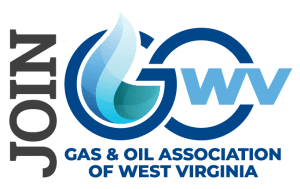By Brad McElhinny in News | November 28, 2016 at 4:26AM
UNION, W.Va. — Of all the conversations that heat up in Kalico Kitchens, a diner here in the seat of Monroe County, no topic is as divisive as natural gas pipeline development.
“Everybody is either all for it or all against it,” said Jessey Neel, a waitress at the restaurant. “Mostly what I hear is against it, but the ones who are for it are 100 percent for it.
“Everybody is on one side or another.”
The subject of this vigorous community debate is the Mountain Valley Pipeline project, which spans about 300 miles, starting in Wetzel County, following a path roughly down the center of West Virginia and ending in Pittsylvania County, Virginia.
The pipeline, proposed by EQT Corp. and NextEra US Gas Assets, is one of several natural gas pipeline projects in development that state officials are counting on to boost West Virginia’s sagging economy.
Despite continued vigorous production of natural gas in West Virginia, the industry has experienced a slowdown because of low natural gas prices resulting from an oversupply. Economically, West Virginia is counting on new pipelines to provide paths to expanded markets. “The pipeline expansion is expected to open up West Virgiinia’s market for natural gas considerably and help increase prices paid to local producers,” according to the annual West Virginia Economic Outlook published by the bureau of Business and Economic Research at West Virginia University.
The other side of that is the effect the pipelines might have on individual property owners. Mountain Valley’s ownership says it tries its best to communicate with landowners, to ask permission for surveys and to negotiate right-of-way easements. The company says it uses eminent domain only as a last resort.
Despite those assurances, property owners along the routes of the proposed pipelines may be concerned about what would happen to land that has been in their family for generations.
The dynamic between the desire for the economic boost that the pipelines represent versus West Virginia’s traditional embrace of private land ownership could resonate over the next few years, including in bills considered during the upcoming legislative session.
In Monroe County, insurance agent and cattle farm owner Bill Shiflett sees both sides but has concluded that the economic opportunity presented by the pipeline can’t be passed up. He says his county and the state need the resulting severance taxes.
“We’ve been told this small county would receive $1.5 to $1.8 million a year on the tax on the pipeline,” Shiftlett said while talking in his office in downtown Union. “Between severance tax and property tax, that is nothing to just turn your head against. You have to take advantage of the opportunity.”
He noted that pipelines are already buried below Monroe County soil. And telephone and power lines also run across people’s property.
Building a manufacturing infrastructure to make products from West Virginia’s natural gas would be optimal, Shiflett noted.
“I do wish we could find a useful product in this state,” he said.
Economic impact and property rights were at the center of a case decided this month by the state Supreme Court. Monroe County residents Bryan and Doris McCurdy objected to surveyors who wanted access to their 185 acres of land. A Monroe circuit judge ruled in favor of the McCurdys, and the case was appealed to the Supreme Court.
The majority of justices agreed with the original circuit decision, concluding that West Virginia’s eminent domain laws apply to projects that have a public use, but that the proposed Mountain Valley Pipeline doesn’t specifically have a benefit for West Virginia because the natural gas isn’t necessarily going to be used here.
Mountain Valley Pipeline is trying to get ultimate approval through the Federal Energy Regulatory Commission, and the Supreme Court decision shouldn’t derail that, company spokeswoman Natalie Cox stated.
“The West Virginia Supreme Court ruling was in reference to a WV statute relating to survey access only, as opposed to condemnation,” Cox stated. “Pending regulatory approval by the FERC, Mountain Valley Pipeline would have rights under federal law upon which it can rely to conclude any necessary property surveying.
“MVP prefers to work with landowners to proceed with property surveying activities in order to determine a pipeline route that has the least overall impact to landowners, the environment, and to cultural and historic resources, rather than seek federal court approval to proceed with the surveys without landowner consent.”
Whether homeowners have the right to decline pipeline surveyors on their property could come up in instances of projects prior to federal approval.
“To the extent the pipeline companies thought they would just be able to bully their way onto people’s properties, that is not going to happen,” said Derek Teaney, a lawyer with Appalachian Mountain Advocates who represented the McCurdys.
“What we should see is more cooperating between landowners and pipeline companies. You catch a lot more flies with honey than vinegar. It also sends an important message to West Virginia property owners. You have the right to exclude, and you don’t have to let these people on your property if you don’t want to.”
A concurring opinion by Justice Allen Loughry in the pipeline surveying case hints that there could be room for the state Legislature to get involved:
“When and if a public use can be demonstrated, through evidence establishing that West Virginians uncontrovertably will have access to this gas, or through legislative or constitutional amendments which provide that shipping this state’s natural gas via pipeline across county and state lines without providing for usage by our citizens constitutes a public use for purposes of eminent domain, then Mountain Valley can proceed to obtain the survey it desires by means of West Virginia Code 54-1-3.8.”
Last year, the Legislature took up that exact issue with the Senate Judiciary Committee considering a proposal to allow gas industry surveyors onto private property if they send a letter to land owners asking permission. But permission wouldn’t have to be explicitly granted to go on the property. The bill passed through committee but went no further.
State Senator Ron Miller, a Senator whose district includes Monroe County, fought the bill and feels like he lost in committee but won on the Senate floor thanks to a coalition of lawmakers motivated by concerns for the environment and property rights — in other words, a mix of liberals and conservatives.
“I can tell you property is very sacred to people down on this end of the country,” Miller said in a telephone interview.
“I have some folks in my district who have a tree farm. It’s been part of their family for generations. It’s gone from generation to generation. The pipeline goes through the middle of the tree farm. They lose the most valuable timber on their tree farm.”
Miller isn’t necessarily against the pipeline. He just wishes it could be less potentially disruptive. He wonders if there’s a way it could follow the path of the Coalfields Expressway, which would connect the West Virginia Turnpike at Beckley with U.S. 23 at Pound, Virginia.
“If they do want to do gas lines out of the state, find an area that does not economically impact a region as much as this region,” Miller said. “I’d even suggest is there a way you could build the coalfield highway and follow the highway? Kill two birds with one stone.”
In any case, Miller believes pipeline development is likely to be back before the Legislature again this coming session.
“It will, and I’ve known this and I’ve told the people in my district to be prepared,” he said. “You may end up losing this. The issue will be framed differently this time. In my mind it will be the same issue. When the state’s in the hole as badly as we’re in the hole, you grasp for whatever you can.”
Woody Ireland, a Republican state delegate who is leaving the Legislature after a decade, can see both sides. That’s because he’s living both sides.
Ireland was chairman of the House Energy Committee and will, officially, continue in that role until the new Legislature takes office in 2017. Ireland represents Ritchie County and lives on a farm that’s been in his family since 1820. The farm is along the path of the proposed Mountaineer Xpress pipeline project.
“There’s no question I think the Legislature will continue to look at job creation. That’s what I think the general population expects the Legislature to do,” Ireland said in a telephone interview. “The pipeline development is going to be key to the future finances of the state. It pays for the schools and libraries and various services people expect. So the development of that resource will be dependent on the infrastructure in place to move it.
“I can say we need to move forward on these interstate pipelines. Then I put on my other hat as a personal property owner. I want some say in where it goes and what it does. All those things are important and they need to be taken into consideration. It’s my perception that if the pipeline developer is willing to work with a land owner you can generally come to a reasonable compromise.”
Ireland’s property already has two pipelines crossing it — one approved by his grandfather in the 1930s — so this would be the third. Ireland gave the pipeline developer permission to survey his land, but he did want some say in where they would be and how they would operate.
Ireland suggests that the recent Supreme Court decision won’t necessarily give individual property owners the means to block pipeline development. There are other ways to survey property.
“With the capability of aerial photographs and GPS, they can pretty well look at the property without ever setting foot on it,” he said. “I can look at the topography. I can look at the vegetation. I can look at the use. I can sit at a computer and plan a pipeline without ever leaving the desk.”
The pipeline developers say their aim is to get the right-of-way but that the land owner continues to own the land. Ireland agrees with that assessment but says it also doesn’t reflect the full situation.
“That property is encumbered by their right of way. So yes I still own the property, but it still is encumbered. So you’re putting some restrictions on the land owner with how he can use it. I can graze cattle but I can’t build a building on it.”
These issues are not just being balanced in West Virginia. Just last year, the Texas Tribune carried the article “Obstacles to pipeline development highlight Texas’ conservative split.” The Virginia Free Citizen, a tea party-aligned online publication wrote “Landowners fear Dominion pipeline will threaten property rights.” That one refers to the Atlantic Coast Pipeline, which has Harrison County in West Virginia as its starting point.
Georgia and South Carolina, both pretty conservative states, passed laws this past year to temporarily ban pipeline companies from using eminent domain. In Kentucky last year, the Court of Appeals ruled that eminent domain can only be used by pipeline companies if the pipelines are regulated by the state’s Public Service Commission.

